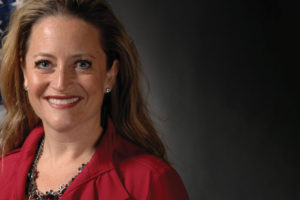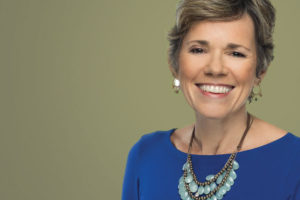We tap Kathy Inkinen’s insight into the evolution of work as she prepares her executive search firm, Inkinen & Associates, for new leadership this June
Come June, you’ll be stepping into an advisor role at Inkinen & Associates. Did your daughter [Kristi Inkinen Yanagihara, owner of Remedy Intelligent Staffing] consider taking the reins?
We share an office with Kristi’s group, but we focus on senior-level recruitment. We found the space together three years ago hoping it might turn into a succession-planning venture, with Kristi eventually overlooking the two businesses. We didn’t end up going that route—the staffing side is very, very busy—but I was lucky enough to find a successor to move the company forward to serve the next generation of companies and candidates.
There are a lot of job sites and other online resources available now to companies looking to fill vacancies. What’s the value of hiring an executive recruiter?
We look for people who are great performers. Our candidates are usually working, doing a great job and aren’t necessarily looking for a change but are open to it if they’re presented with the opportunity. They’re busy working—they’re not going online, seeing what’s available and posting their resume. So that’s kind of our niche.
What are some best practices for an executive joining a new company?
A good executive is visible. Get to know your employees and make them feel they’re an important part of the family. There are different ways to do that now with electronic communications, but a personal visitation does so much.
How has the landscape changed as it relates to women in the workplace?
There’s many, many more women in the workforce than when I first started, both here and on the mainland. Early in my career, employers all maintained a policy of nondiscrimination, but sometimes they had their, let’s say, “preferences.” Women were considered less reliable as employees because of their role as caregivers. Even in male-dominated professions now, more employers are not only open to hiring a woman but even prefer a woman for certain positions. They feel women sometimes manage [people] better or, more commonly, that they’re better multi-taskers. In this fast-paced, changing world, that’s important to an employer.
It’s been 27 years since you founded Inkinen & Associates. What inspired you to do this work and what were you doing prior to starting the company?
Prior to this, I ran two human resource departments, one at a luxury hotel and one at a bank. In those days, people’s tenures were very long, and I figured that would probably change. That I could be the intermediary in that transition by introducing employers to prospective employees, growing both the company and the candidate’s career.
Were there a lot of other executive search firms at the time?
Hardly any.
Why not?
There was less of a need for it. Employers promoted from within the company, and employees stayed at their jobs for a long time. But our world is moving and growing so very quickly now that certain positions aren’t necessarily a fit forever, from both the company’s and the employee’s perspective.
Today, people are open to considering new positions because they want to learn more and grow faster, and companies are open to having new people come in and contribute fresh ideas, particularly at the executive and managerial level. They’re not necessarily giving an award to someone who’s been with them for 20 years.
When I started this business, employers thought, why would I pay to hire somebody new when I can promote from within? But when the economy takes a turn and you’re looking for a new approach, you can’t reasonably expect an employee who’s been with you for 20 years to give you those ideas. Where would they come from?
What about today? Is there a lot more competition in your business?
There is a lot more competition today than when I started, but I don’t believe there’s any other firm that does only executive search. They’re doing the whole gamut. We take about three months to complete a project because, number one, there are less high-level candidates than in the lower and mid-level job market. Secondly, there are more soft skills to consider at the executive level—it’s not only about industry experience. Personality, management style and communication style are more difficult to ascertain immediately. We do a lot of screening, vetting and getting to know the candidates.
A mainland candidate, for example, might not make for a successful placement if they have no connection to Hawai‘i other than wanting warmer weather. It’s a different culture, it’s expensive, it might not be a good fit for the family.
It’s equally important for us to get to know the company’s leadership style and corporate culture. Are they open to someone from another industry? What transferable skills would work well in this role?
A true leader is someone who goes above and beyond to contribute to the community at large, not just someone who leads people well or produces a good bottom line.
Are employers looking for different soft skills today than they were 30 years ago?
Flexibility and ability to change are big ones. Employees weren’t considered loyal or valuable if they were at a job for less than 10 years. Today, companies want employees, especially managerial ones, with varied experiences. They’re looking for managers who are always considering how the world is changing and how the company can follow suit and remain competitive.
Accountability is not necessarily only hours at work. Employers have begun focusing more on performance. What results is the employee bringing? Do they manage people well? What can they offer as the business grows or downsizes?
Change is something I think both companies and employees are working towards. Sometimes it means more flexibility from the employer over where and when the job gets done. I knew of a great human resource director who I wanted to hire, but she had two kids and couldn’t work full time. Having someone join our staff of full-time employees on a part-time basis was a major change for this company, but as employers, we have to be willing to be flexible as well.
Even though she’s here only three days, it’s a non-issue because of the technology we have available. Before, when anyone went on a trip, we had to designate someone to take care of their portfolio in their absence. Now? We’re so connected, that’s not always necessary. I have a smart watch—at my age!
Service is very, very important to us, so we are always in touch. That’s another thing that’s changed—people expect responses, fast. It’s no longer acceptable to wait until Monday.
Flexibility and ability to change are valuable qualities in any employee, not just those at the executive level. What are some indicators of leadership potential?
I think a true leader is someone who goes above and beyond to contribute to the community at large, not just someone who leads people well or produces a good bottom line for their company. I like to see that kind of vision in young people and middle management as well as in executives. It tells me that it’s not just about the bottom line for them.
We all live in this community, and with everyone’s participation we can become stronger. There are companies now that give employees hours of paid time to contribute to nonprofits. That’s kind of a new thing. Executives who set that example are true leaders, in my opinion.
You’ve been active in numerous nonprofits over the course of your career. What are some causes, organizations or initiatives you’re involved in at the moment?
In addition to helping with the Honolulu Japanese Chamber of Commerce as a board member and the Japanese Cultural Center of Hawai‘i as a lifetime member, I’m involved in a women’s group within the American Lung Association called Lung Force. People don’t know it, but lung cancer is the largest [cancer] killer of women. Since there aren’t indicators or pre-screenings like with breast cancer, many don’t find out they have it until it is very serious. A lot more research is needed, and research takes dollars, so it’s really an advocacy and communication effort. There is a lot of work that needs to be done.
I’m still active after so many years in the University of Hawai‘i Travel Industry Management alumni association. Tourism is our main economic engine, and I believe we can “export” the aloha spirit by being models of good service in hospitality. Hospitality creates peace—the more people travel, get to know people from other countries and learn other languages, the more chance we have at living peacefully.
Another big initiative of mine is bringing people back home to live and work. It’s a challenge with our cost of living, but there are advantages to coming home and raising a family or building a career here after you go to the mainland for work or college, even if it means a reduction in salary. It would be nice if we could bring people home a little more aggressively, but that would entail not just solving our real estate crises but improving public transportation and so much more. We as a community need to solve these problems. While my work is focused on helping employers find good people to work for them, we should always be aware of ways we can work together to live better in this community.



